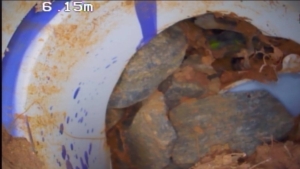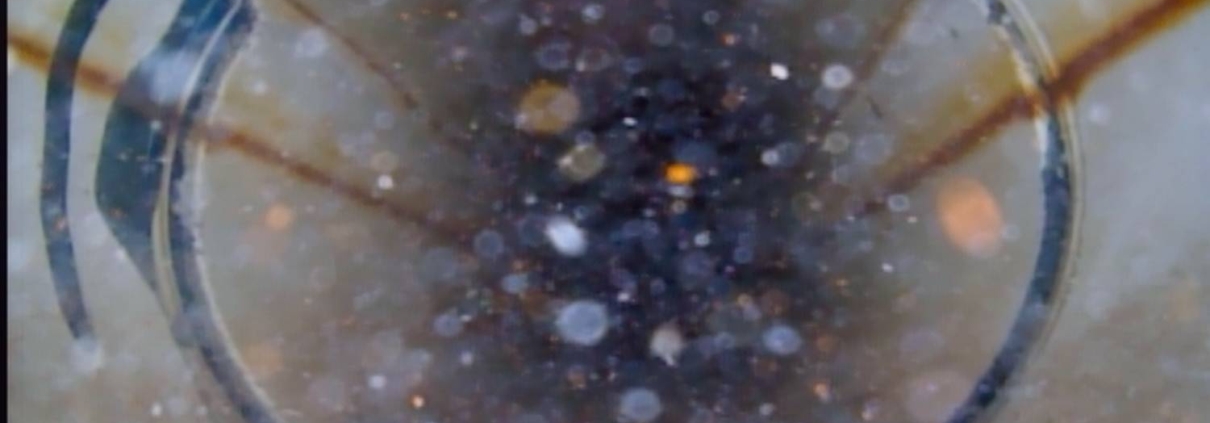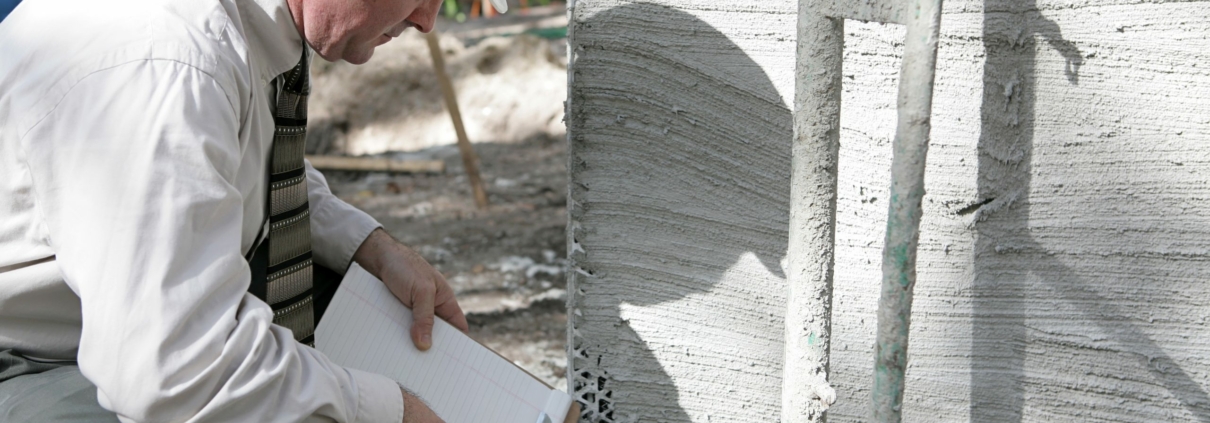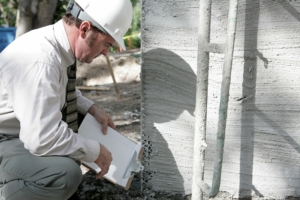Does one need to get a sewer scope along with a home inspection? Absolutely, yes! The reasons are many and it is a very easy decision given the implications of a sewer line defect.
What Is A Sewer Scope?
A sewer scope is a video inspection of the inside of your sewer line, usually the “lateral line” that is underground between the house and the city tap at the street. Sometimes, the line under the house (if on a slab) can be also be inspected during a routine sewer scope if there is a readily accessible cleanout. This part of the line is called the “building sewer”. Most sewer scopes only cover the lateral line, but whenever possible, we also inspect the building sewer on slabs.
What Is The Goal Of Sewer Scope?
There are largely two points to a sewer scope: identifying the pipe material, and searching for defects such as cracks, bellies, or clogs.
Identifying the material is important because while the 1950s remodel you bought advertises “New Plumbing”, this may only apply the building sewer, and not the underground lateral. You may see brand new 4″ Schedule 40 PVC in the crawlspace or basement, but old (and likely corroded) cast iron is still between the house and city tap.
It can also be quite useful if your region has been known to use Orangeburg pipe (predominantly on the East Coast) between the 1940s and 1970s, which has long been disallowed. This was a “bituminous fiber” pipe meaning it was made from compressed wood pulp, asbestos fibers, and tar. Seemed like a good idea at the time, I suppose.

Crushed Orangeburg pipe from a 2022 sewer scope of a 1954 house in Salisbury, NC.
Identifying defects inside of a sewer line can really only be done with a sewer scope. One has to snake a camera through there to view the condition of the pipe’s interior. The only other way is just to wait for a stinky puddle to pop up in the yard, or for grayish-brown water to start coming up through your shower drain.

A completely flooded and damaged SDR 35 sewer line in Columbia, SC from a Feb 2025 inspection. A backup into the home and/or yard was imminent.
Why Should I Get A Sewer Scope During the Inspection Process?
Very simple: peace of mind, proper planning, and/or additional negotiating power. According to a Porch.com analysis a few years ago, the estimated value of a home inspection is about $14,000, meaning home buyers get an average of $14,000 in concessions, repairs, price reductions, etc. when buying a house. That means the ROI of a $500 home inspection is 2,700%!
A sewer line inspection can range anywhere from $150 to $300. Given that a sewer line repair can cost between $1,500 and $7,500 and full on replacements can exceed $10,000 (not including any possible damages to the home that would have occurred during a backup), the ROI is at least going to be similar to the home inspection, likely better. From an investment standpoint, this is a no-brainer.
If the inspection finds nothing, great! You can breathe a sigh of relief and now you know where the line is located. Get a cheap insurance policy on the line just in case roots from the giant oak tree in the neighbor’s yard decide to encroach on your sewage disposal rights.
Should I Get A Sewer Scope On New Construction?
New construction homes are not immune to sewer line defects. See exhibit A:

Charlotte new construction. Gravel from under the driveway punctured this brand new line.
The gravel substrate for the driveway had crushed right through the pipe. These contractors got their wires crossed which meant they had to dig up this driveway and do it all over. What’s more, this neighborhood discovered multiple instances of this and I got a phone call a week later that at least five additional driveways were being demolished to repair crushed lines. This single sewer scope had a ripple effect for multiple families, saving potentially 100s of thousands in flood repairs.
I Already Own The Home – What Now?
Sewer scopes are not just for the due diligence period of home buying. If you have never had your line inspected, it has the same importance. If you live in an older home with a cast iron line that is older than 50 years, a sewer scope is great to have so you can not only get an idea of the condition and how much time you may have left, but it can tell you where the line runs and how long it is. Pricing for replacement is based on linear foot, so this is a great way to start planning for the future.
You also want to head off any potential problems and avoid flooding. If you can identify defects such as offsets or bellies, these are vulnerabilities for clogging. If the previous owners washed down a lot of grease into the sewer line, this would be a good time to learn that so you can have the line cleaned and avoid clogs.
Large trees on the property can also be an issue. A sewer scope can spot the early stages of root intrusion before something like this happens:

In a collab post on IG with Sustainable Plumbing, we found what was causing a sewage backup into a home that these clients recently moved into. There was no way to see this coming except to have had a sewer scope.
After at least two backups, the problem was found using a camera. Although the camera could not see anything except water and black mass that could not be penetrated, we could at least determine that this was a major blockage and it was located under the street. Since it was under the street, it was the city’s responsibility to repair the line. However, the thousands of dollars that was spent on cleanup in the home could have been avoided had they had the line inspected.
The other thing to do is to have a separate policy in place for your sewer line. The typical home owner’s insurance policy does not cover the sewer line. These policies are cheap and easy to get.
Other Benefits Of Added Inspections
In 2022, we scoped a line that was listed as being connected to city sewer. Our camera entered a septic tank, meaning either the listing was wrong or there was a highly illegal connection of a septic tank to a city tap. This then turned into a potential septic inspection which for us means accessing public records for permit information.
During that search, the latest aerial image of the house showed the remains of a house fire – which had not been disclosed. So we had the sketchy seller busted on two things: hiding a septic tank, and not disclosing a very recent house fire (although that’s not technically always required).
This was borderline fraud, but no charges were brought. At the end of everything, this $200 added inspection ended up equaling $30k for the buyers.
The more you inspect, the more you are likely to uncover. For your largest purchase, pull out all the stops and get as much inspected as possible. The best, most cost-effective way to do that is to start with a home inspection and sewer scope, then go from there based on those findings.







